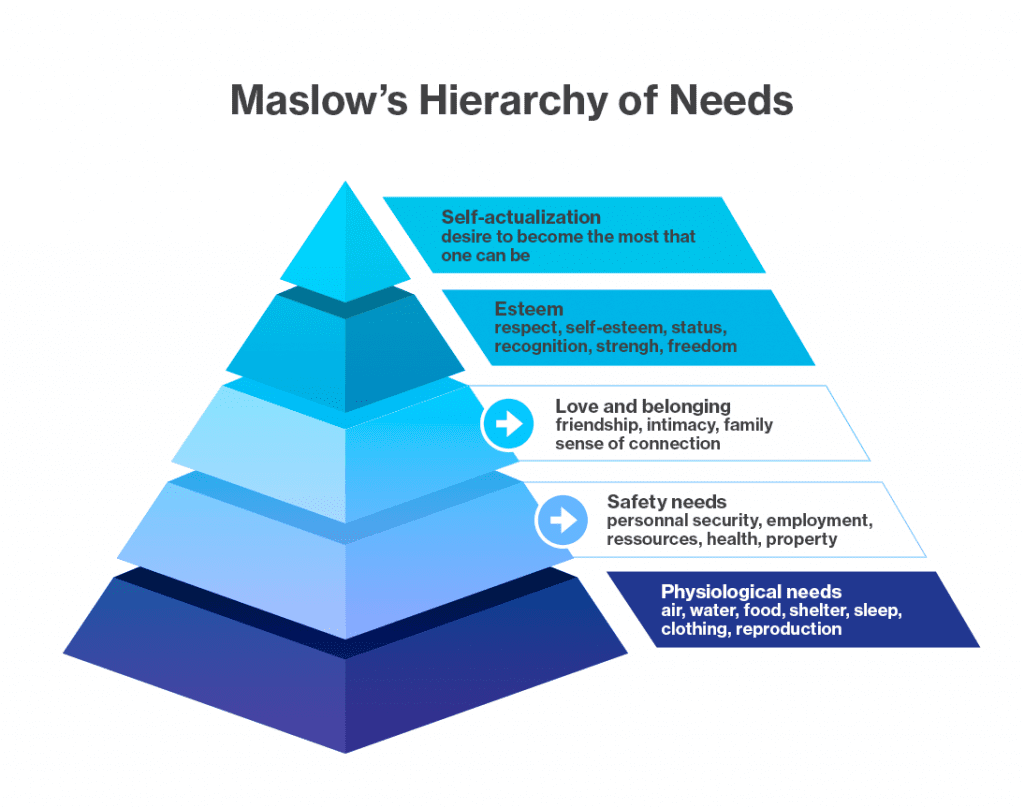The current situation caused by the COVID-19 pandemic is new for everyone—we are all in the same boat!
Today, I was trying to carry a phone conversation with my boss, bent over on all fours fixing a leaky dishwasher, as my 13-month-old daughter climbed all over me. To top it all off, I couldn’t stop thinking of this article I had to write.
We all have a lot to juggle at the moment, as we adapt to a situation that is both stressful and challenging.
As business owners, marketers or agency leaders, it’s our duty to communicate effectively with our customers and members. You may have already received a variety of emails yourself, some good and some clumsy.
And, you are probably asking yourself: How can I avoid being awkward, what should I send, what’s the best way to execute?
As communications and marketing manager at Cyberimpact, I would like to share some thoughts, ideas and best practices with you. I’m not pretending to have all the answers, but my experience could be useful for you in these difficult times.
Why you should use email
I’m confident that email is the preferred means of communication during a crisis, since it’s universal. Everyone has an email address and has access to it even when working from home. Also, email lends itself well to a more serious tone, which is appropriate in a situation like this one. Social media is more relevant when it comes to quick, fun, inspiring content, etc. In my opinion, for all official and important communication, email should be used.
Empathy above all
The COVID-19 pandemic is global and universal. Literally, everyone is affected. So, this situation has the power to bring us closer together. I think, before you send a message, you should always put yourself in the recipient’s shoes and have empathy for what they are going through. Think of the people who:
- are sick
- have loved ones who are sick
- are without a job
- can’t work from home while taking care of their children
- feel alone and isolated
Make sure that when they read you, people feel that your priority is everyone’s well-being. Here is an excerpt from an email I received from the Retail Council of Canada. I detected genuine empathy when I read it.
During these challenging times, Retail Council of Canada’s (RCC) top priority is ensuring the safety and well-being of our retail community.
We are working 24/7 on behalf of all our members and talking to all levels of government and health agencies to ensure Canadians’ diverse retail needs are met while keeping everyone safe.
Humans need to feel safe
Most of us are stressed and worried these days, including me! Remember this pyramid?

What your readers need from you is part of the Maslow’s Hierarchy of Needs: The need for security and belonging.
The primary role of your emails should be to reassure your subscribers and make them feel that you are with them during this challenging time. As content senders, it is our duty to reassure and calm the panic that tends to set in. Here is an excerpt from an email we sent to our customers this week:
Rest assured that by while doing our part to slow the spread of the virus, we are still operating at full capacity! The whole team is working from home and continues to help you communicate effectively with your contacts.
Do not hesitate to contact us if you think we can help you with your email communication. We are listening!
Let’s remain united!
The purpose of this email was to reassure our customers that we are there and that our services are still operating. Reassuring and unifying, these are the key words to remember.
It’s not time to sell!
Using the current situation to promote and sell is a little awkward. I saw an email with the subject line “Coronavirus Sale”. Uh…no thanks!
It’s time to solidify the relationship you have with your audience. It’s time to help, reassure and give. You are currently working on building your brand’s sympathy capital. Selling is important of course, but it should be saved for later, when the state of emergency has lifted.
Likewise, avoid using the feeling of urgency in a crisis situation. “Act Now” or “Last Chance” email subject lines usually work well, but they don’t have a place during a global medical and economic crisis.
Be generous
Can you help your readers get through this crisis? This is the question to ask. Here are some examples of companies that are giving a little more to their customers:
- A gym posting workout videos to do at home
- A restaurant that now offers delivery services
- An app for meditation and relaxation offering free content for everyone
- A software company that extended their customer service hours
- An internet provider that lifted their usage limit
If you can find a way to help the lives of your subscribers, don’t hesitate to email them about it! You invest in the relationship you have with your subscribers and it will come back to you later.
Besides, giving is a good way to promote your products or services and you could boost your sales. Giving may be the best way to sell during a crisis, if not the only way.
A good example is Calm, which is giving away guided meditations without asking anything in return.

Is humour a good idea?
If the tone of your brand is humorous and your subscribers expect humour from you, then yes, it might be a good idea.
But if not, please refrain. My advice is to have a more serious tone than usual. Remember the points above. Your priority is to be empathetic, unifying and reassuring—not comical. What is funny to one person can be offensive to another. During a crisis, your plate is already full, without having to deal with a controversy caused by a clumsy joke.
Pay attention to your subject lines
Looking at my own inbox and the emails our customers send, I see a lot of things like “COVID-19 Update”. At the very beginning of the crisis, this subject line worked. People were curious to learn about the situation. But now we are all saturated with information on this subject. If I see another “COVID-19 update” in my inbox, I’m not opening it!
You shouldn’t send an email on Coronavirus just because everyone else is doing it. Only send useful emails. And if your email has a reason to exist, mention why it’s useful in the subject line. This is how you will stand out in your reader’s overflowing inbox.
Here are some examples of non-generic subject lines that properly highlight the content of the email:
- My friends and colleagues, we must avoid the crisis!
- In these difficult times, Cyberimpact is here to help
- UPDATE: 2020 Canadian Email Summit
- COVID-19: The Chamber supports businesses
- Making your office safer for everyone
- Stay home, eat well, help your community
A little reminder about the structure
We noticed several mailings that contained a lot of information in a single long paragraph of text. We understand! Many need to communicate quickly and have a lot of information to share at once.
But long paragraphs are hard to read. Rather, separate your different topics and ideas into short paragraphs. And why not illustrate your ideas by inserting images that accompany your text? In short, make your emails easy and fun to read. No, this advice is not specific to communicating in times of crisis, but it seems like a good reminder to do.

Helpful tools and resources
New email templates to use during a crisis
We have introduced new email templates that you can find in your Cyberimpact account now!
A free image library
We provide millions of royalty-free images to use in your email campaigns. The library has been updated with multiple images to illustrate COVID-19. Access these images by logging into your Cyberimpact account.
Survey tool
Do you want to ask your customers, employees and members questions about the current situation? You can do this easily with our micro-survey tool.
Various examples of good crisis management emails
The Really Good Emails website has put together a collection of emails to inspire you. They are updating it continually with new ideas.
A Guide to Email Marketing in Times of Crisis
The very competent experts at Litmus have created this useful guide in pdf format.
Free account
Cyberimpact offers free accounts for organizations with fewer than 250 email addresses, so don’t hesitate to use it.
I wish you all good luck in this painful ordeal that we are currently going through.
Don’t hesitate to contact us, the Cyberimpact team is working hard (remotely) to ensure that your email communications reach your audience!

Thank you for this article. It is very informative and we will be following some of the advice offered.
It’s a pleasure! Thanks for reading and commenting, Dave.